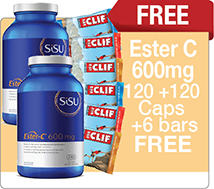Pregnancy
Updated Oct. 13th, 2017
It's stressful (but wait... stress isn't allowed either!) This is such a special moment in your life, make sure to take a step back and simply do what feels most right for you... IN MODERATION! Moderation is the key to a healthy pregnancy, a healthy baby and a healthy and happy family.
For many women, nutritional interventions and supplementation in preparation for pregnancy and childbirth, can begin a year or more before conception. In fact, pre conceptual preparation dates back centuries. Pre conceptual exercise, following a balanced diet, ensuring proper relaxation and a healthy mindset... these were considered necessary measures in order to cleanse and tonify the body and cultivate optimal health for the child.
Nowadays, many argue that the foods we eat do not supply us with the therapeutic range of nutrients that they once did, and due to a lack of nutrients in the typical 'western diet' of today, supplementation with a prenatal vitamin is almost always recommended. During pregnancy, childbirth and lactation, nutritional requirements do increase, and thus additional supplementation can mean the difference between infertility, low birth weight infants, physical and mental anomalies (all associated with poor maternal nutrition) and the birth of a healthy baby.
Caloric intake does not necessarily need to increase while pregnant, depending on the mother's weight and caloric consumption at conception. We now know that the idea of 'eating for two' is hardly accurate. It is generally well accepted that a diet of about 2300 calories/day will promote healthy, baby related weight gain. For athletes or women who are generally eating a higher daily caloric intake, simply aim to stay at the consumption that is 'normal' for you pre-baby. A healthy weight gain, if you were considered in the 'normal' weight range post conception, is 30-37 lbs. That being said, intake of certain food groups (while avoidance or caution with others) is recommended. Protein requirements, during pregnancy, increase substantially. Low protein diets have been associated with higher risk of pre eclampsia. Aiming to get 70-80 grams of protein a day is a good start. The consumption of dairy products during pregnancy is a little controversial. Although dairy is a great source of much needed calcium, some argue that diets high in dairy products during pregnancy can lead to dairy allergies in childhood. Much research needs to be done before this conclusion can be made, but in general, it is never a good idea to eat a lot of one food or food group. A well rounded diet is one of moderation. Ice cream and cheese, although they are delicious, best not be consumed on a daily basis.
Folic acid (Folate) and Calcium are the only vitamins/ minerals whose requirements double during pregnancy. Deficiencies in folic acid have been linked to both low birth weight infants and neural tube defects. Supplementation has been shown to effectively prevent these issues in the majority of high risk pregnancies. Folic acid can be found in green leafy vegetables, nuts, whole grains, liver, parsley and dandelion. Low dietary intake of calcium has been shown to correlate with incidence of preeclampsia, characterized by high blood pressure, swelling, and/or protein in the urine. Pre eclampsia poses a significant risk for pre-term delivery and can threaten the life of the mother, and cause much damage to the fetus. Calcium has also been shown effective in decreasing leg cramps, common in late pregnancy. Calcium is said to be better absorbed during pregnancy, that being said, some forms of calcium tend to cause constipation. Some high (and dairy free) sources of calcium include dark leafy green vegetables, asparagus, pumpkin seeds, fresh parsley, raspberry leaf and nettle infusions/teas.
Other essential nutrients that you want to make sure are present in your prenatal vitamin (or diet, if you are choosing to increase your intake of via diet) are: B vitamins (B1, B2, B3, B12 and B6), Vitamin C, Vitamin D3, Vitamin E, Vitamin K, Iron, Magnesium, Potassium, and Zinc). If hemoglobin tests suggest deficiency, iron supplementation may need to go beyond that supplied by your prenatal vitamin.
Separate and increased levels of B6 may be indicated for the treatment of nausea and morning sickness, especially in cases that include substantial vomiting. It is only recommended to use higher doses during the first trimester, as higher doses can lead to decreased breast milk production, and can cause the infant to experience withdrawal seizures, if still at high doses close to delivery. There is some research to suggest that given during labour, B6 increases oxygen carrying capacity of the blood that supplies the fetus. Ginger is another herb that is great for morning sickness and nausea. Just peel a small chunk and let it steep in hot water. Drink as needed.
Probiotics. There is some evidence to suggest that probiotic intake during pregnancy can prevent urogenital infections common to pregnancy (ie; bladder infection/cystitis). There are also studies to suggest that the use of probiotics, more specifically lactobaccillus rhamnosus, may help to prevent group B strep. infections in expecting mothers. Probiotic supplementation during pregnancy and continued in infancy can also decrease incidence of infantile atopic dermatitis. Additionally, probiotics can help to relieve constipation and decrease incidence of heartburn and gas, some of the common and less enjoyable side effects of being 'with child'.
DHA and EPA from Fish Oils. Studies confirm the importance of DHA for healthy brain development. DHA supplementation in pregnancy has been correlated with better hand eye coordination, IQ test scores, motor development and attention span in infancy and childhood. DHA supplementation during pregnancy and while breastfeeding has also been linked to higher birth weight and optimal visual development. There are no official requirements for DHA in pregnancy, although research is suggesting a minimum of 200 -300 mg of DHA/day. This amount can also be obtained easily through incorporating fish into the diet. Look for organic, wild salmon, tilapia, freshwater trout and other fish ranked low in contaminants like mercury.
There is HUGE list of herbs that are contraindicated in pregnancy, so rather than go through them all, here are a few that are not only safe, but effective for a variety of pregnancy related issues. Most of these herbs are most commonly recommended via infusion/tea. Red raspberry tea has been shown to be safe and effective throughout pregnancy and breastfeeding. It tonifies the uterus, increases the flow of milk, and is said to restore the reproductive system following childbirth. It is also rich in Iron, and vitamins C and E. Dandelion leaf (and root) tea is a potent source of vitamins and minerals, as well as helping to stimulate bile flow, helping to cleanse and tone the liver and acting as a mild diuretic. It can also help to alleviate nausea and indigestion. Nettle is high in calcium and iron, among many other vitamins and minerals. It makes a great during pregnancy, as it can help to improve energy, dilate the blood vessels, reduce varicose veins and alleviate leg cramps. Instead of a tea, try adding the leaves to your salads!
The best advice I've ever heard? Sit back, relax and enjoy this special time in your life!























It is really important for baby brain development to have prenetal vitamin. My doctor suggested me Nordic Natural prenetal vitamin and I am very happy with it!
Hello Muge,
Thank you for sharing. Prenatal vitamins are very beneficial as they provide all the essential vitamins for mom and for baby at the correct and optimal doses too. We're glad you found a brand you enjoy, Nordic Naturals is great!
Keep healthy and well.
I find nurturing your body with nutrition and healthy exercise is so important, especially during pregnancy! It is so important to know that there are a lot of herbs that are not safe for pregnancy as sometimes people think natural always means safe, so I appreciate that being added to the article. I would love to learn more about how to get the body ready for conception as well since this article had great information on pregnancy health!
Hello, Oh,
Happy to hear you enjoyed this read. Exactly, it's important to know the contraindications before taking herbal supplements. Because they are so potent, there are certain circumstances where they aren't always advised. Here you can learn more about fertility enhancement as well:
https://www.nationalnutrition.ca/articles/health-concerns/infertility/
Have a healthy day!